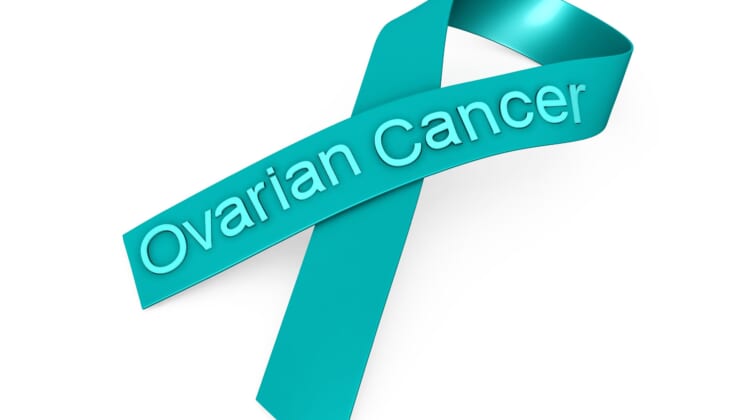Pay Attention to These Early Signs of Ovarian Cancer

The ovaries——women have many things they can thank this small reproductive organ for. Because of the ovaries, you can grow families and enjoy children running around the house. This organ is also responsible for the hormones estrogen and progesterone that bring on periods, contribute to feminine anatomy and sustain pregnancy. However, like most other areas of the body, this helpful organ can turn cancerous, and detecting the early signs of ovarian cancer is key.
According to the American Cancer Society, over 20,000 women will be diagnosed with ovarian cancer this year. A staggering 14,000 will die from it, a rate that reflects the usual timing of the cancer’s diagnosis.
Because ovarian cancer can disguise itself in its early stages as a simpler problem, many patients don’t catch it until the later stages. However, if caught early, patients have over a 90 percent treatment success rate, according to ACS.
Dr. Edward Tanner, from the Johns Hopkins University School of Medicine, told Fox News that “we used to call ovarian cancer the silent killer but it’s really not completely silent.”
Always check in with your doctor about any abnormal symptoms, especially if the symptoms resemble early ovarian cancer.
Early Signs
The biggest factor to consider with the early signs of this disease is whether your symptoms are an abrupt change from what you’re used to experiencing.
Also, your symptoms will usually persist for weeks or months and even recur regularly throughout the day. You should get medical evaluation if you have one of these early signs:
- Bloating
- Abdominal pain or pressure
- Increased urination or urge to urinate
- Abnormal fullness during or after eating
- Difficulty eating
As you can see, these symptoms are vague and can suggest a variety of health problems. If you do have ovarian cancer, though, the symptoms will persist and get worse over time.
Other symptoms that suggest a worsening of the cancer include pain during sex, irregular periods, fatigue, indigestion/constipation, heartburn or back pain.
10 Signs That Your Sniffles are a Sinus Infection
How Genes Play a Role
Several factors can affect your risk of getting ovarian cancer, and one major factor is genetic mutation. BRCA1 and BRCA2 are two genes in the body that suppress tumor proteins and repair damage to DNA cells.
If these genes have mutated, the body won’t be able to repair DNA damage effectively, and cancer can grow more easily.
According to the National Cancer Institute, women with one of these gene mutations have a nearly 40 percent chance of getting ovarian cancer, compared to 1 percent in the general population.
Thankfully, you can undergo genetic testing if you suspect that you have this gene mutation. For instance, you may choose to do so if you have a family history of breast or ovarian cancer.
What happens if you do have the BRCA1 or BRCA2 mutation? First, you can choose to start cancer screenings early. Some experts recommend as early as 25 years old in these cases.
You can also make lifestyle changes to reduce your risk of disease, such as eating a healthy diet and exercising. For ovarian cancer specifically, you may lower your risk by taking birth control, having a pregnancy, breastfeeding or removing your ovaries.
In addition to this genetic mutation, other risk factors for ovarian cancer are
- Family history
- Personal history of breast, colon or uterine cancer
- Use of fertility or hormone medications
- Endometriosis
- Personal history of no pregnancy
Getting Treatment
Because of the nature of ovarian cancer, you will likely need surgery as part of your treatment. In the early stages, your doctor may only recommend a minimal surgery with removal of one ovary and fallopian tube.
However, if the cancer has progressed, your doctor may recommend removal of both ovaries as well as some surrounding tissue. Next, the surgery is usually followed by chemotherapy treatment to kill the cancer cells.
Some doctors may recommend targeted therapy drugs which actually hone in on the cancer cells’ ability to divide and multiply. In some cases, you may also have hormone therapy as an option, in which the drugs taken inhibit the body from making estrogen.
The ovaries are an important part of your reproductive system. While they can get cancerous tumors, you will greatly enhance your treatment success by catching early signs of the ovarian cancer. Be sure to look into any abnormal signs, especially if the symptoms persist or worsen.
